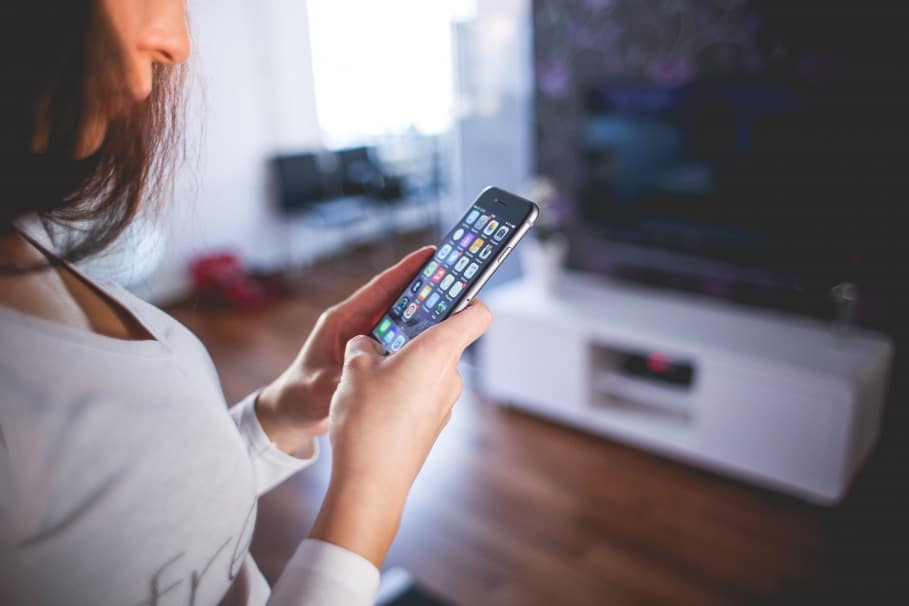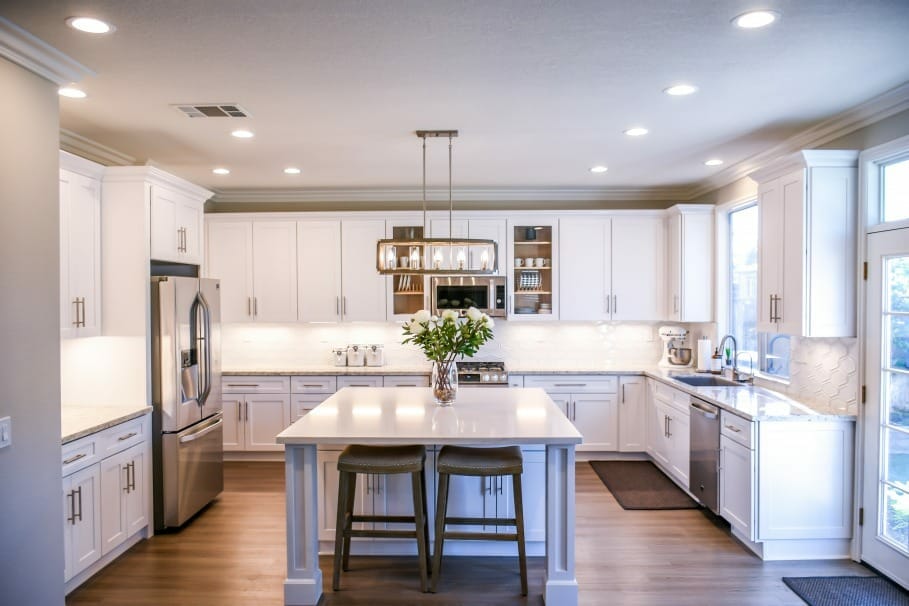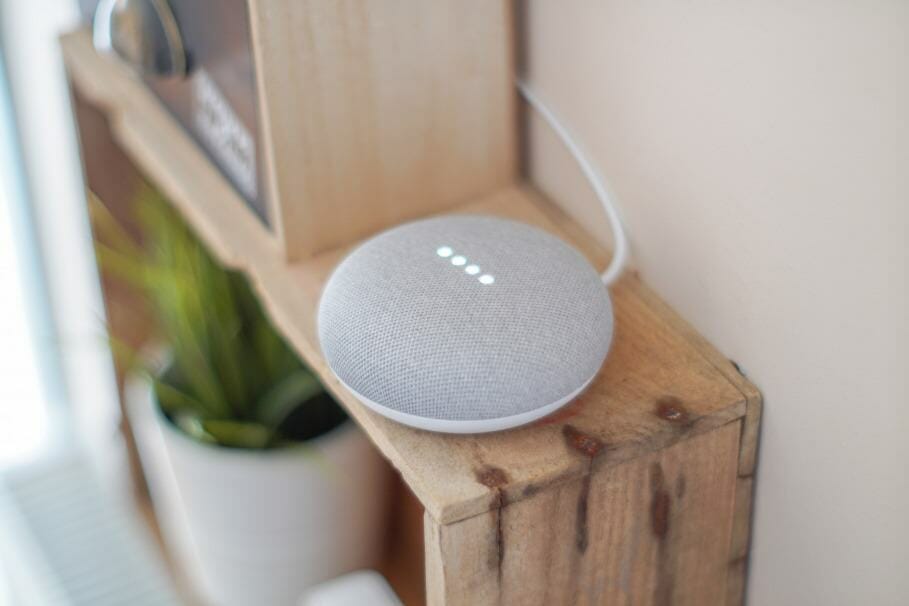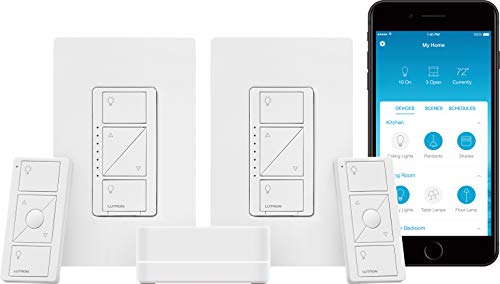In this post, we compare Lutron vs Leviton, two of the most popular smart lighting solutions...
Are you eager to introduce some smart home technology to your home? While it used to be expensive and complicated, the newest products are not only more affordable, they make them very easy to set up. Lighting that adjusts to your needs perfectly is a good way to start with that smart home. You can choose between systems like Lutron Caseta Wireless and Leviton Decora Smart.
These two brands promise to provide your home with a smart solution to lighting, and they have some similarities and differences when it comes to how they work. Understanding these will help you with the decision between the two.
What Do They Have In Common?

- Remote Control
The best part of smart home technology is the convenience and flexibility they provide. There is no need to get up and walk to the other side of your home simply to switch the lights off or to dim them. They both work with remote control, which is the biggest benefit of these systems.
- App Control
Leviton Decora Smart Systems come with 3 different models, and all three plus the Lutron Caseta could all be controlled by a smartphone app. They work well with different apps but the main point is that they can all be switched on and off with your phone.
- DIY Smart Lighting Solution
There are quite a few smart lighting systems out there, but some actually need more professional installation. Not only is it expensive; it will also be a hassle to look for someone to do the work. The huge advantage of both the Lutron and the Leviton systems is that they do not need any extra wiring and can be set up without any technical assistance whatsoever.
- Energy-saving Features
While being able to switch on the light from a remote or phone sounds cool, the main reason for investing in smart home technology is to save energy. Because they are only on when you are actually using them, you can see lower energy bills. Along the way, you will be able to do your part for the environment. Some places also give out rewards or rebates for switching to smart home technology, so the benefits just pile up.
What Are The Differences Between The Two?

- Technology
Both of these systems offer a customizable smart lighting solution, but they have variations when it comes to the technology for the switches, outlets, and dimmers.
The Smart Leviton has models that use either WiFi or Z-Wave technology to connect. Of the two, the second is much more stable and reliable. Despite this, you will find the Lutron Caseta Wireless still better.
Lutron uses its signature Clear Connect Technology so that it is very popular for its wireless performance being highly reliable. The reason for this is that it uses a quiet frequency without issues with interference. There will be no issues with controlling the lighting.
- Connectivity
A smart lighting solution is worthwhile when it allows you to adjust your home’s lights without inconveniencing you. Automating the control is a bigger plus. Both systems have switches and dimmers will adjust the lighting physically, but you may need a central hub to control them. Leviton’s DW and DH-Series, however, do not require this but the DZ-Series needs a hub like SmarThings or Wink. While this sounds more complicated, it allows you, in reality, to integrate the lighting into a whole smart home setup.
When it comes to Lutron’s system, you need specifically the hub from the same brand to make it work properly. Lutron’s Smart Bridge or Smart Bridge Pro works with other products of the same brand and other brands like Sonos Audio systems and Nest Protect. This allows for some opportunities, but it is still more limited compared to systems like SmarThings or Wink. A Wink hub, because it supports Clear Connect technology, may control your Lutron Caseta Wireless.
Voice Control
Both of these brands have support for voice control, but the type of voice controllers they use are different. There is a huge variation specifically with the Smart Leviton product family, so you need to pay a lot of attention to the controller you need before buying it.
The Leviton DW-Series works well with Google Assistant and Amazon Alexa, plus it does not need a hub to talk to the controllers. The DW-Series, it is important to note, works only with Alexa when it is controlled by a third-part hub. If you are using Apple products, the DH-Series works only with Siri HomeKit voice control. It also does not need a hub.
If flexibility is very important to you, then you should go for Lutron’s Caseta Wireless system, because it works with all 3 major voice controllers without any issue at all.
Design
The color and the finish of your lighting system might not be as high a priority as other features, but it still matters when you consider the overall interior design of your home. The Decora collection comes with the same colors, no matter which of the 3 models you end up buying. The dimmer and the switches are all in white. If you get the Smart Switch Color Change Kit will make it possible for you to access other shades (Light Almond, Ivory, Brown, Black, and Gray). While this involves a bit more investment, you benefit from a variation in the aesthetics.
Lutron Caseta Wireless dimmers come in many colors, including Black, White, Light Almond, and Ivory). Like the Decora, they also come with white dimmers. For a few more dollars, you can purchase the parts to get your desired finish.
- Warranty
One other important factor to consider before a purchase is the warranty that comes along with the product. Although prices for smart home technology have dropped recently, they still represent an investment especially when you are buying for the whole home. A warranty allows you to claim in case of damages or malfunctions.
The Lutron Caseta comes with a one-year warranty, which can be extended to 2 years when you complete the Caseta Wireless Customer Feedback Questionnaire. This does not compare, however, with the five-year warranty that comes with every Leviton Decora Smart system.
How They Work In A Smart Home Environment

Smart lighting not enough for you in the end? Setting up smart lighting is only the first step in home automation, and once you get the hang of these devices, you might find yourself wanting to expand and include more. Knowing how these 2 systems work with other products is important because you do not want to get stuck with a product that cannot be expanded or is not compatible with other systems in the end. The limitations will cost you more down the road or will make your smart home just more complicated to set up.
The Lutron Caseta Wireless system is, without a doubt, the more flexible of the two. They work with the popular controllers and products out there like Nest products, Sonos smart speakers, and Apple HomeKit. This means you can set up your lights in conjunction with the thermostat, security, and even music systems without compatibility issues.
When it comes to Leviton’s Decora products, it depends on the model series you buy. The DW-Series will allow you to work with Nest products, plus it allows you to automate the lighting based on alarms and sensors. For hands-free control, it works with Google Assistant. Plus, it has support for IFTTT, so it allows you to set condition triggers for turning on the lights or dimming them for movie night.
The DH-Series has been designed to work with HomeKit, so it is the best option for those whose smart homes are based on Apple’s products or controlled using Siri. Lastly, the DZ-Series is a bit more flexible, based on the hub you end up using. The choice of the hub will eventually determine which products will be compatible or not. If you already have a smart home set up, then the DZ-Series might be the easiest to add to it.
If you do end up with the Lutron system, you might find purchasing a Pico remote worthwhile. While controlling through the app is always possible, the remotes add some more features and flexibility, allowing you to control the lighting and music even from outside the house.
Which Should You Choose?

Are you having trouble deciding which one of the two to choose? Both systems have their clear advantages and disadvantages, but it all boils down to specific factors you should consider.
First of all, your plans for a smart home system should always include any future gadgets you want to add. This influences the choice of the system and hub completely, so even if your upgrades are not planned for a long time, they should already be incorporated in your decision.
Another factor to consider is the ease of setup and installation. If you are tech-inclined and want to create a fully integrated smart home system, then there are fewer limitations for you. But if you want something easy, then this should factor in your decision.
Price and functionality are other factors you need to think of. By considering all of these, you will end up with the perfect smart lighting system for you and your home.


